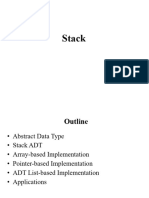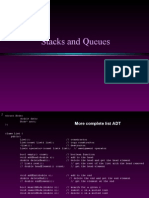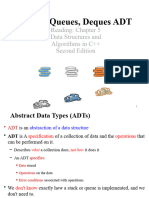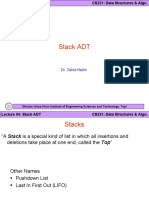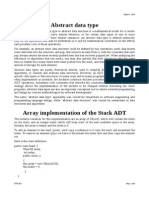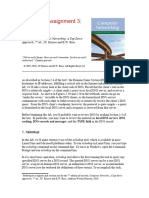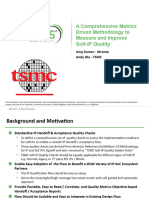0% found this document useful (0 votes)
88 views37 pagesData Structure Chapter 5
The document discusses stacks as an abstract data type (ADT) and its implementations. It defines stacks as LIFO data structures and describes their key operations like push, pop, top. It then presents two implementations of stacks - using arrays and linked lists. The array implementation uses a fixed-size array and pointer to track top element. The linked list implementation uses nodes and pointer to track head, allowing dynamic size. It provides code for stack class template with member functions for each operation. Finally, it demonstrates testing the stack class.
Uploaded by
affan ashfaqCopyright
© © All Rights Reserved
We take content rights seriously. If you suspect this is your content, claim it here.
Available Formats
Download as PDF, TXT or read online on Scribd
0% found this document useful (0 votes)
88 views37 pagesData Structure Chapter 5
The document discusses stacks as an abstract data type (ADT) and its implementations. It defines stacks as LIFO data structures and describes their key operations like push, pop, top. It then presents two implementations of stacks - using arrays and linked lists. The array implementation uses a fixed-size array and pointer to track top element. The linked list implementation uses nodes and pointer to track head, allowing dynamic size. It provides code for stack class template with member functions for each operation. Finally, it demonstrates testing the stack class.
Uploaded by
affan ashfaqCopyright
© © All Rights Reserved
We take content rights seriously. If you suspect this is your content, claim it here.
Available Formats
Download as PDF, TXT or read online on Scribd
/ 37

